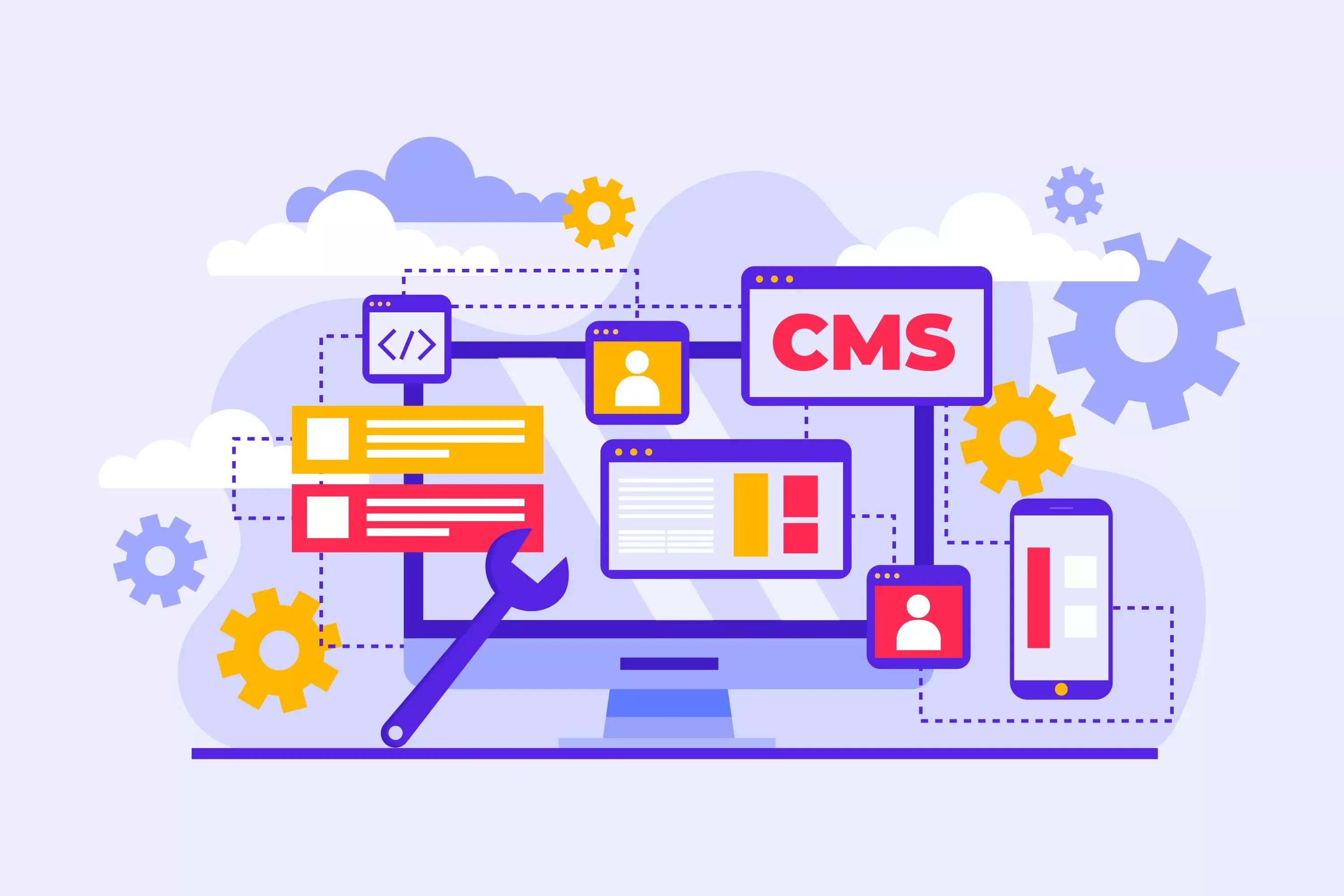How to Improve SEO of a Blog Post
-
 By Editorial Staff
By Editorial Staff
-
14 March 24
Search engine optimization (SEO) can significantly boost your website’s organic traffic and elevate the ranking of your blogs on Google. Climbing the search engine ladder with your blog involves a combination of techniques that, when done effectively, can catapult its search engine visibility. This brings us to the question, how do you optimize your content to be search-friendly? There are several techniques that, when applied together, can optimize your blogs for SEO. In this article, we will go through the best strategies to improve SEO rankings, through an in-depth exploration into the world of keywords, backlinks and content optimization.
Summary
-
How to Improve SEO of a Blog Post
- 1. Keyword Research
- 2. Utilize Internal Linking
- 3. Prioritize Effective Titles & Meta Description
- 4. Avoid Repetitive Content
- 5. Incorporate Rich Media
- 6. Fix Broken Links
- 7. Optimize Page Speed
- 8. Post Frequently
- 9. Be Mobile-Friendly
How to Improve SEO of a Blog Post
Search engines are a super important traffic source for blogs, and one of the fundamental aspects of SEO is keyword research. However, achieving good SEO rankings typically involve implementing a combination of strategies rather than relying on a single approach. Other things like optimizing title tags and images, writing compelling meta descriptions, revising your website’s architecture and HTML code, etc, play their key roles. Let's take a closer look at the methods you may use to raise your blog post's SEO rankings:
1. Keyword Research
Keyword research is a technique used by publishers and SEO experts to discover topics that may be of interest to your audience, based on search engine data. Typically, topics with search traffic potential tend to fare much better because they leverage what is trending, or what users are actively searching online. This aligns with search engines' goal of providing relevant content to users. When your content addresses popular search queries, search engines are more likely to recognize its relevance and authority, which can positively impact your blog’s SEO ranking. It is easy to identify relevant keywords and phrases related to your blog topic using tools like Google Keyword Planner or SEMrush, Ahrefs, or Ubersuggest. These tools provide valuable insights into search volume, competition, and related keywords, to expand your keyword list. You may consider long-tail keywords with more specific phrases as well as analyze competitor keywords to identify common themes and topics. It is also essential to intermittently review and upgrade your keyword strategy based on changing trends and the performance of your content.
2. Utilize Internal Linking
By effectively utilizing internal linking strategies, you can improve your blog’s SEO ranking by enhancing crawlability, distributing page authority, and providing a better user experience for visitors. Including internal links to at least one of your own articles within your blog may help users navigate to other pages on your website to build further engagement. Additionally, these internal links will create a contextual relationship between your webpages, signaling to search engines that your content is interconnected and relevant. Use breadcrumb navigation to help readers understand the organization of your blog and easily navigate between different levels of content. Creating good content increases the shareability and the chance that other websites will link to it. Therefore, prioritize creating valuable content to maximize its impact and reach.
3. Prioritize Effective Titles & Meta Description
A well-optimized title can significantly impact a page's visibility in search engine results pages (SERPs) and its click-through rate (CTR). Consider titles with appropriate keywords and compelling language. Ensure your keyword appears within the first 60 characters of your title, as this is where Google cuts off titles in the search engine page results. Crafting concise and effective meta descriptions are equally important as they summarize the content of your blog posts and include relevant keywords to attract clicks.
4. Avoid Repetitive Content
Avoid the practice of copying text both from external sources as well as from within your website to avoid content duplication. Search engines prioritize content that is original, relevant, and engaging for users. Therefore, the more unique your text the higher your chances of ranking.
5. Incorporate Rich Media
Because Google's algorithm relies on user behavior to determine rankings, bloggers should prioritize keeping their readers engaged for as long as possible. Incorporating a video, audio, infographic or other interactive content into your website may retain visitors for longer durations and minimize bounce rates. Moreover, multimedia content tends to garner more shares on social media platforms, thereby amplifying visibility and generating additional backlinks, to further boost SEO.
6. Fix Broken Links
Broken links, commonly referred to as 404 errors, can affect user experience and convey to search engines that your website could be outdated or inadequately maintained. Too many broken links can negatively impact your blog’s ranking as Google wants to recommend useful, up-to-date sites. Frequently reviewing your website using tools such as Google Search Console or third-party website crawlers can identify this issue. This helps search engines crawl and index your website more effectively, and ultimately contributes to better SEO rankings.
7. Optimize Page Speed
Evaluate and improve your website’s page speed to keep your content loading fast. You can evaluate your page speed with Google's PageSpeed Insights. Using softwares to reduce the size of your CSS, HTML, and JavaScript files that are larger than 150 bytes can significantly improve load time. You can minimize the number of HTTP requests by combining CSS and JavaScript files, using CSS sprites for images, and limiting the use of unnecessary plugins. Inherently, HTTP requests are not bad as they can affect numerous key metrics that determine how engaged your audience is with your business, but striving to keep the number of requests to under 50 is generally good for page speed.
8. Post Frequently
The frequency of your content can directly impact your SEO rankings as search engines crawl websites more frequently when they detect new content being published regularly. This can lead to faster indexing of your pages and better visibility in search results. Each new piece of content you publish holds the potential to attract organic traffic leading to higher engagement. However, it is equally important to maintain quality alongside frequency, so ensure that your content is focused on value and information.
9. Be Mobile-Friendly
In addition to creating quality content, it's essential to optimize your blog’s technical aspects for better SEO performance. Mobile-optimized blogs achieve better SEO rankings given the substantial volume of smartphone traffic. Additionally, it enhances user experience, reduces bounce rates, and increases engagement.
The Bottom Line
By considering the above key factors, you can optimize your blog’s visibility, traffic, and overall performance in search engine results pages (SERPs). Consistently monitoring and refining your SEO strategies over time will ensure that you continue to rank well and attract organic traffic to foster effective growth and increase your rate of liquidity and revenue as a blogger.
| Recommended Software | Category | Why Choose? | Signup URL |
|---|---|---|---|
| Setupad | Website Monetization | High CPMs, On time payments | Signup here |
| Adsterra | Website Monetization | AdSense alternative, niche CPMs | Signup here |
| Beehiiv | Email Monetization | Additional revenue, High CPMs | Signup here |
| Semrush | SEO | High impact on SEO and traffic | Signup here |
| Frase.io | AI SEO | Affordable, Boosts SEO traffic | Signup here |
| WP Rocket | Speed Optimization | Affordable, Boosts Pagespeed | Signup here |

Editorial Staff at Publisher Growth is a team of blogging and AdTech experts adept at creating how-to, tutorials, listings, and reviews that can publishers run their online businesses in a better way.
View All PostsOur Editors’ Pick:
Browse these amazing publisher monetization tools handpicked by our team of editors























 (1).webp)


